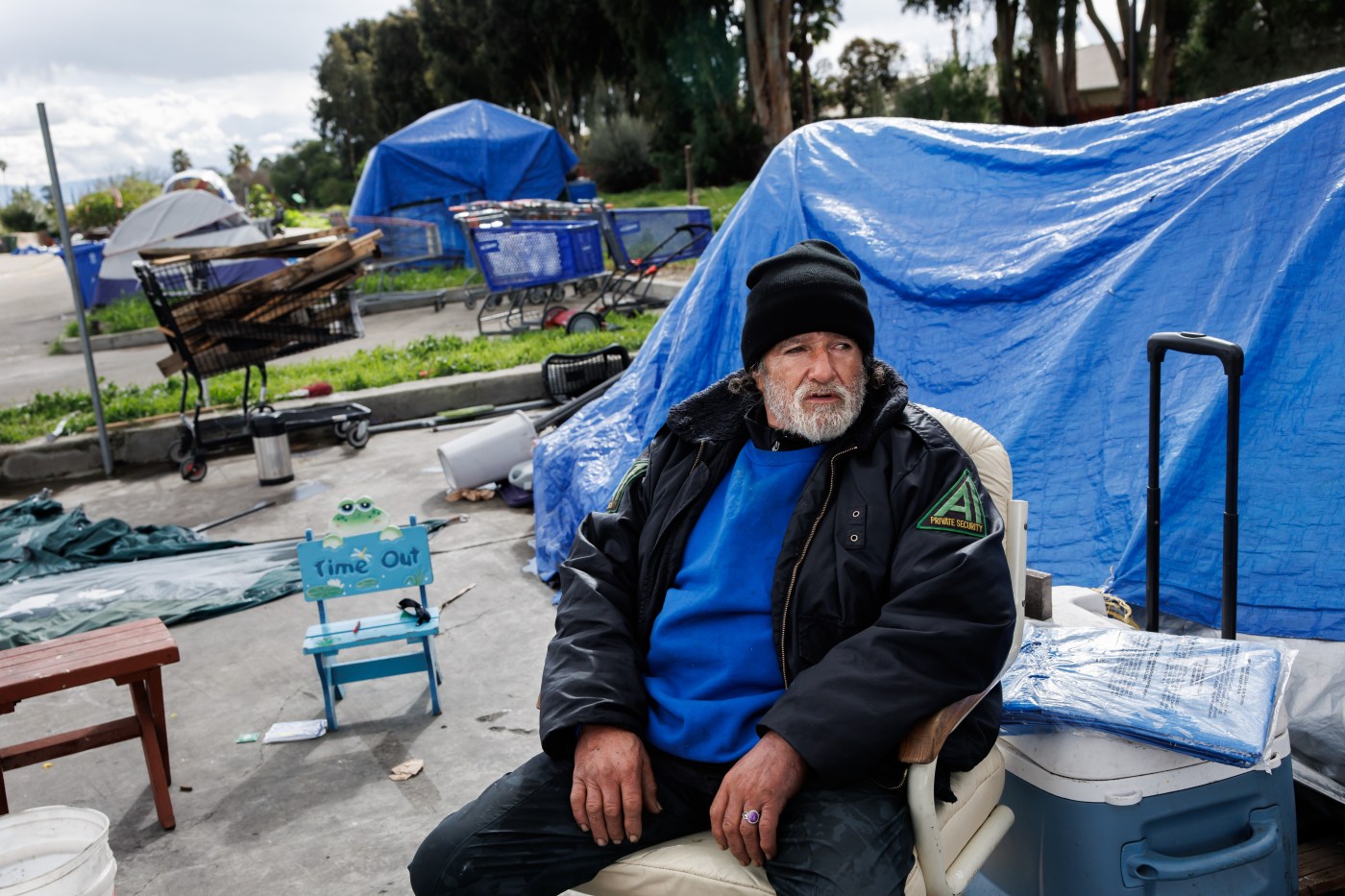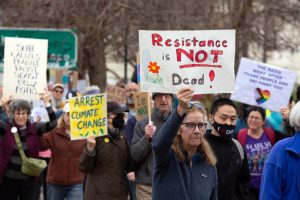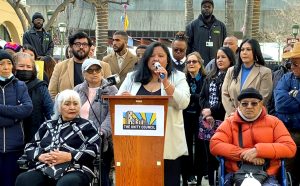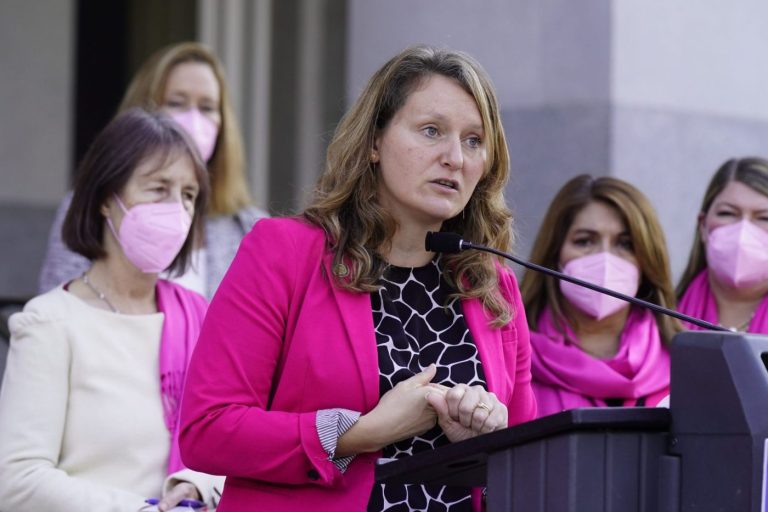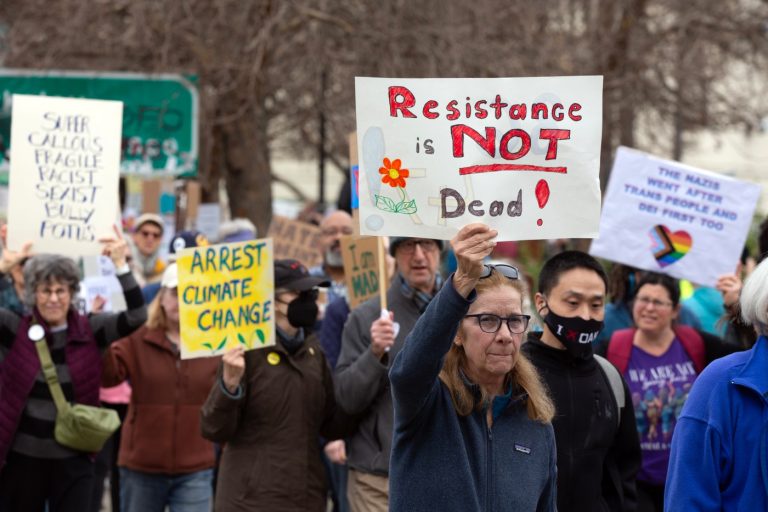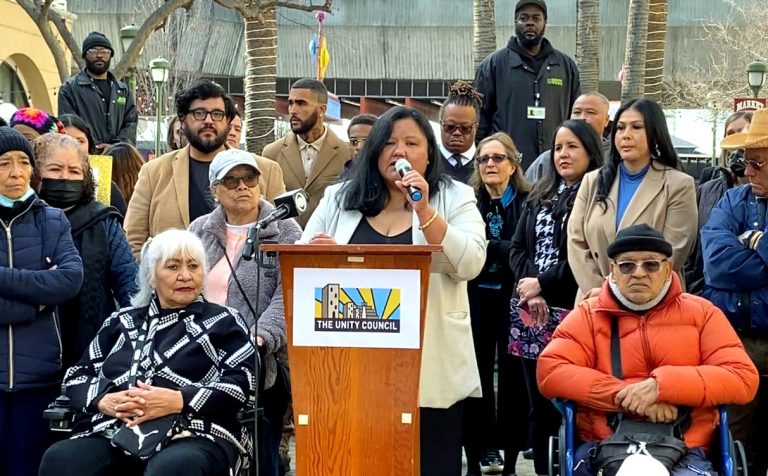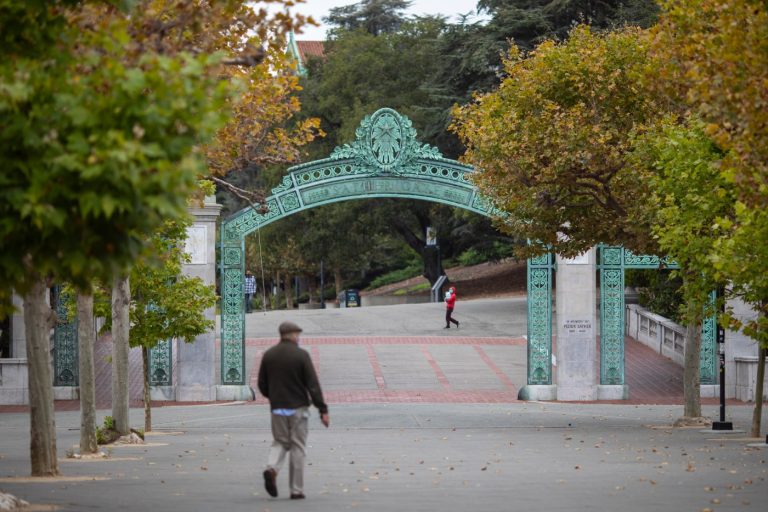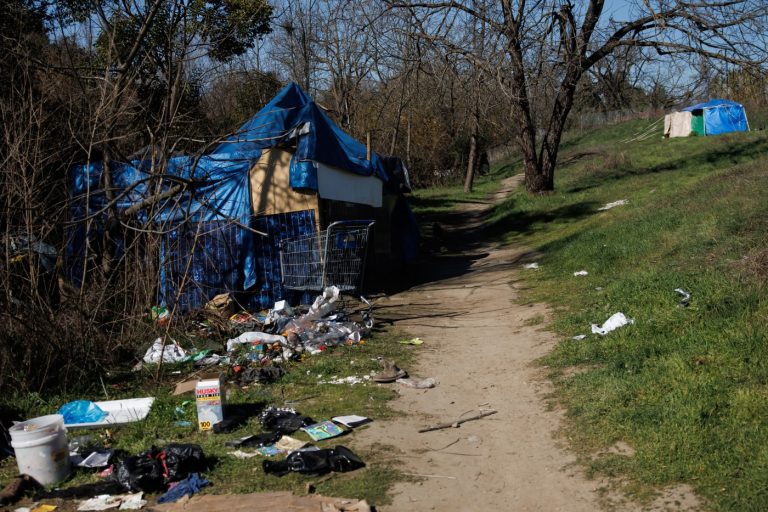The city of Fremont has been thrust into the national spotlight this week for adopting a stringent public camping ban that also makes it a crime to “aid” or abet” any violation of the new law.
The aiding-and-abetting language has raised fears among advocates for homeless people that anyone helping people living in encampments could soon have a target on their backs.
The penalty for violating the ordinance: a fine of up to $1,000 and up to six months in jail. It takes effect in just under 30 days.
In the face of the controversy, the City Council, at the urging of many local residents, pushed ahead to approve the ban Tuesday. But officials emphasized they have no intention of arresting anyone offering homeless people food, clothing or other aid, and promised to work closely with the city’s local homeless service providers.
“Let’s continue to work together so we can help our unhoused individuals,” said Fremont Mayor Raj Salwan at Tuesday’s council meeting.
That hasn’t assuaged advocates, who’ve accused the city of trying to push out the city’s homeless population with the ban. They worry it will have a “chilling effect” on nonprofits and local community groups offering support and potentially deter the city’s roughly 600 residents living on the streets from accepting needed services.
“In one fell swoop, this ordinance has the ability to erase any progress we’ve made with (homeless people),” said Vivian Wan, chief executive of Abode Services, the city’s primary service provider.
What exactly does the ordinance say?
The ordinance prohibits camping on any “street, sidewalk, park, open space, waterway, or banks of a waterway, or any private property not designated and equipped for such camping.” It also makes it a crime to “store personal property, including camp paraphernalia,” on all public property and private property without the owner’s permission.
Additionally, the law establishes that anyone “permitting, aiding, abetting or concealing a violation” of the ordinance “shall be guilty of a misdemeanor.”
How does the city plan to enforce the aiding-and-abetting rule?
Before the City Council voted to adopt the ban Tuesday, City Attorney Rafael Alvarado explained that since the ordinance only applies to camping and storing belongings, someone would only be charged for aiding and abetting if they were furthering those specific acts.
“As written, the city would not enforce this ordinance on someone that is handing another person food or clothing,” Alvarado said.
In practice, city officials said that means authorities would likely only seek to prosecute someone found erecting makeshift dwellings or “tree houses” in local creeks or other public land.
David Bonaccorsi, an advocate, attorney and former Fremont city councilman, questioned whether anyone in the city was actually seeking to help homeless people build such structures.
He also noted the ordinance’s definition of “camp paraphernalia” — which can’t be stored on public property — “includes, but is not limited to, bedrolls, tarpaulins, cots, beds, sleeping bags, hammocks or cooking facilities and similar equipment.”
Bonaccorsi said that despite what officials say publicly, under the letter of the law, offering a homeless person a camping stove or bedding to keep warm at night could now also be considered a crime.
Related Articles
Woman found deceased at East Bay homeless encampment
San Jose will open its largest interim housing site this month
New model puts new potential price tag on San Jose’s cost to end unsheltered homelessness
Fremont’s new homeless camp ban is among the toughest in California
Bay Area town delays camping ban amid federal litigation
Do other cities have similar ordinances on the books?
Tristia Bauman, an attorney with the Silicon Valley Law Foundation, said that while the aiding-and-abetting rule is not unprecedented, it’s rare for cities to include such language in their no-camping ordinances.
City officials note that Fremont already had language in its municipal code prohibiting the aiding and abetting of any criminal violation. They’ve maintained that the inclusion of the language in the ordinance itself was done only “in the interest of transparency.”
Fremont officials pointed to other cities, including Berkeley, Hayward and Sunnyvale, that have both camping restrictions and general aiding-and-abetting language on the books.
Can advocates stop the ordinance from taking effect?
In a letter to the City Council, the American Civil Liberties Union and other advocacy groups blasted the ordinance as “patently unreasonable,” adding the aiding-and-abetting rule “will expose the City to legal liability.”
The ACLU described the rule as overly vague and argued California courts are not likely to enforce laws that “allow people to ‘indiscriminately be made the subject of prosecution,’” especially for misdemeanor offenses.
Asked whether the ACLU plans to sue to halt the ban, the group said in a statement that it is “closely monitoring this ordinance and other measures that criminalize poverty across the state.” It’s still unclear if other organizations could be planning a legal challenge.
